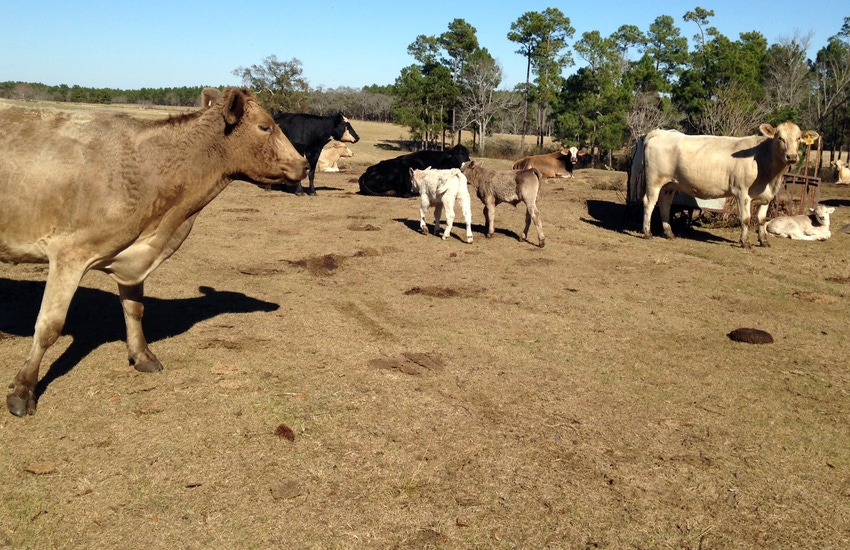October 21, 2016

I really was hoping I wouldn't have to write this. I keep hoping that I'll find a drought-ending rain in the forecast when I open the email containing the 10-day weather forecast each morning. It hasn't been in the forecast.
The forecasters at the NOAA's Climate Prediction Center posted their latest predictions about the 2016-17 winter weather outlook. It isn't pretty. Their brief video reveals their projections to be less than optimistic and, honestly, neither am I.
Tonight, I took some time to once again refresh the material on our Drought Management webpage on www.georgiaforages.com. Take a moment and review some of the material there. There is a listing of some hay directories there, as well.
Hunker down
To co-opt one of Larry Munson's famous lines, “It is time to hunker down.” There are recommendations for various drought levels in our Extension publication entitled: "Forage Use and Grazing Herd Management during a Drought." Specifically, I recommend that Georgia producers pay close attention to the following recommendations adapted from the "Severe and Extreme Drought Conditions" section of that publication:
Continue to confine animals in sacrifice paddocks and limit the access of grazing animals to current pasture supplies (if any) by allowing them to graze for brief periods during the morning or evening. Take steps now to line up hay reserves for the livestock you must carry through the winter, even if it has to be shipped from southeast GA.
If the leaves and/or stems of warm-season grasses in the Sorghum family (sorghum, sudangrass, sorghum x sudan hybrids, and johnsongrass) are wilted and red or tan-colored, avoid feeding this forage as it may contain toxic levels of prussic acid.
Continue supplementing this limited grazing with a balanced ration of hay, soybean hulls, corn gluten, cottonseed, or other such supplements to stretch the available forage.
Maintain livestock in optimum body condition score (e.g., at least a BCS of 5 in the beef cow herd).
Focus on investing resources only in animals that are likely to generate a return by continuing to cull according to your cull priority list. Begin culling more deeply based on calf weaning weights, cow age, and calving date. Try to maintain a herd of cows that will calve within a 90-day period.
Wean all calves that are 60 days of age or older. If calves are retained, feed them a grain/by-product-based diet (80 percent grain/by-product) to continue growing at acceptable rates.
Calculate how many animals are feasible to carry through these conditions and sell the remaining livestock.
I'm hearing cull rates are averaging 10-20% with highs in NW GA of 40-60%. The reduction in hay reserves in combination with no rainfall to get winter grazing planted (much less growing) means that depopulating is a smart response. Hopefully, you've already culled your herd heavily, because culls at the stockyards are bringing prices lower than we've seen in 5 or more years.
If we get some rain soon (before Nov. 1), small grains and ryegrass are still options. If we don’t get much moisture until later into November or even into this winter, then the best option will be to plant ryegrass. Late plantings of small grains are unlikely to yield more than 50% of normal. November/December plantings of ryegrass and clover should be 75-80% of what they might have otherwise done. More info on late plantings here.
Play defense
Also, be aware that we will likely have a flush of weeds in 2017. Overgrazed pastures and a seed bank full of weeds from last time means that we have a real storm is brewing, and not the kind that will bring rain. Add in the lack of cash flow given current livestock prices, and this one is going to get worse before it gets better.
I'm sorry to be a "negative Nelly" but this drought situation is as serious as 2007 and in some areas the extent of this drought is as bad as it ever has been. Don't ignore the problem and think it will go away. Plan for the worst, and hope for the best. I will post updates on the www.georgiaforages.com website if new information develops. Until then, hunker down.
You May Also Like




